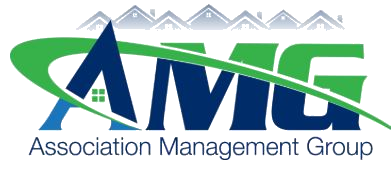AMG’s CEO Paul Mengert leads successful legislative battle to protect community association rights
/New Legislation Protects Homeowner and Condo Associations Rights
Imagine no longer being able to collect assessments from property owners to pay for maintenance of a dam. What if your volunteer association board was prohibited from enacting reasonable rules or setting a policy about fencing, setbacks, and architectural changes? Consider the chaos if your community governance documents were suddenly voided.
All of these scenarios became very real probabilities in North Carolina in recent years. In addition, these probabilities were being carefully watched by Community Association Institute (CAI) chapters across the US, because the way North Carolina handled the issue could inspire similar action–and set a precedent–around the nation.
Thanks to the efforts of the NC Legislative Action Committee (NC LAC) and a team of volunteer stakeholders over the last two years, NC Senate Bill 278 was recently signed into law by North Carolina Governor Roy Cooper (now enacted Session Law 2022-12). The new law specifically excepts planned community and condominium covenants from invalidation under North Carolina’s Marketable Title Act – put another way, it prevents homeowner and condo associations from losing the governance and decision-making rights they have been granted for decades.
According to Weldon Jones, CAI lobbyist and attorney practicing HOA and condo law with Jordan Price in Raleigh, NC, it’s a big win for all involved. He’s been in the trenches on this issue since 2019. “Owners can now feel confident that what they bought into, believe in, and love will remain,” he said. “And on the flip side, HOA and condo volunteer boards can be confident that owners must honor their commitments, per the covenants.”
It all began with two 2021 NC Court of Appeals opinions, one on the Marketable Title Act (MTA), a law from the early 1970s intended to limit how far into the past real estate title searches had to go. The MTA states that all restrictions beyond a property’s residential status are eliminated after thirty years if they aren’t specifically written into each deed. While the court cases involved old restrictive covenants that did not apply to community associations, the broad language wiping out all old restrictions suddenly left associations created before 1991 in doubt, opening them up to undesirable changes in their communities and hampering the ability of volunteer boards to accomplish goals, from enforcing architectural control, to collecting assessments, to maintaining the property. The problem wasn’t just that the new ruling might invalidate an association itself. It was the more subtle, confusing issue of removing restrictions from some homeowner lots, depending on the language written into the individual deeds. Bottom line: According to the court rulings, existing association documents and governance might not be enforceable for some of their owners. In a word: chaos.
At the same time, another case cast doubt on whether older condominiums were able to use collection methods from the Condominium Act of 1986. It was clear that legislative solutions were required, since these rulings contradicted long-standing practice and legislative intentions for association governance, as outlined in the Condominium Act of 1986 and the Planned Community Act of 1999.
Complicating the NC LAC’s efforts to protect association rights were many competing interests regarding changes to the MTA. It was hard for commercial real estate attorneys, title insurance professionals, realtors, closing attorneys, association managers, and homeowners to envision–much less achieve–a solution that would work for all. NC LAC chair Paul Mengert, founder and CEO of Association Management Group, Inc. (AMG), made it his priority to bring everyone and their disparate opinions to the table with a common purpose to preserve the full governance rights of associations. It worked. The NC LAC partnered with stakeholders and North Carolina legislators to prevent the covenants of homeowner and condo associations from being invalidated under the MTA.
The team also inserted changes into 47C of the 1986 Condominium Act to ensure provisions apply to condos built before then, regardless of their declarations, enabling them to collect assessments in the same manner as newer communities. Mengert believes an important factor in achieving a positive outcome was reaching across the table to work with the NC Association of Realtors. “I have known Kelly Marks, 2021 president of the North Carolina Association of Realtors, for many years and worked with him throughout my career,” Mengert noted. “Kelly quickly understood the dire ramifications to community associations and those homeowners. He helped us form an alliance with the Realtors and get their powerful legal lobbying teams to work with us on solving the possible consequences of the recent court cases.”
Cynthia Jones, an attorney with Sellers, Ayers, Dortch, and Lyons, P.A. in Charlotte and President of the North Carolina chapter of CAI, believes such coalition-building and collaboration were critical to the success of the new bill. As chair of the Business Partner Council of national CAI, and a member of the national CAI Board of Trustees, Jones understands the power of teamwork and commitment. “This was a huge deal and extremely important to our CAI membership in a real rubber-hits-the-road way,” she said. “We attorneys understood the implications and did our best to convey our concerns to others. We knew if we didn’t fix it, it would be a massive issue for all North Carolina associations.”
Mengert’s long tenure as NC LAC chair, along with his decades in the association management business, gave him a unique perspective on what was happening. He understood how dire the court ruling could be for associations and how big a difference advocacy could make, despite the diverse viewpoints within the legal and real estate industry. “While our group shares fundamental goals, opinions on how to accomplish the goals often differ,” Mengert pointed out. “It’s hard enough to convince everyone within our industry to come together on solutions for matters ranging from solar panels to virtual meetings, to title restrictions, to collection procedures. Imagine how hard it is to convince those outside our industry. For this recent legislation, I believe it was a successful combining of everybody’s desires: trying to get people much of what they wanted without too much of what they didn’t want. It was really quite remarkable that our LAC was able to align with the North Carolina Association of Realtors, the title insurance industry, and the NC Bar Association to quickly and effectively pass legislation to protect North Carolina associations.”
Cynthia Jones notes that meaningful change only happens when knowledgeable, dedicated people are willing to come together–and work together. “When this issue arose, the fact that we could all quickly put our heads together to brainstorm solutions to resolve this problem and work with legislators was just amazing. The NC LAC was instrumental throughout the entire process, giving countless hours to think about what was needed, revise the bill’s language, and talk with legislators. It would not have happened without our NC LAC.”
Lobbyist Weldon Jones also believes the expansion of the NC LAC to include an impressive stakeholder team was essential to success. “Two heads are better than one,” he stated. “The more people you have advocating for an issue, the better. Along with national CAI, we were aligning with some powerful entities: NC Realtors Association and NC Bar Association are significant lobbying groups in the state. CAI gets a lot of respect for being able to leverage all of these relationships into partnerships to raise awareness about this issue. The number of people working on this had an enormous impact across industries.”
Tim Sellers, founding member of Sellers, Ayers, Dortch, and Lyons P.A. and NC LAC member, concurs. “When you have so many competing interests on a significant issue, it is very rare that there is a legislative solution, that the General Assembly will come together and agree to pass something,” he observed. “Controversial things are hard to pass; cooperation and consensus are much easier to pass. The tension was to try and negotiate a solution that could be supported by everyone on our team. It took a lot of conversation and word changes, negotiation and arguments–all behind the scenes–to arrive at this language of cooperation and consensus that was ultimately supported by everyone. That’s what we accomplished, and we did it in relatively short order.”
But collaboration doesn’t happen in a vacuum. It takes strong leadership, says attorney Jim Slaughter, President of Law Firm Carolinas and another key participant in the new legislation. “The NC Legislative Action Committee and various interest groups were vital to this process, but NC LAC Chair Paul Mengert deserves specific recognition,” he commented. “Paul personally acted to bring certain stakeholders to the table, reached out to legislators of influence directly, and repeatedly pushed to get the proposal acted on during this two-year legislative cycle. He continued to seek passage of the bill even as it got moved from committee to committee, was not adopted in 2021, and the language was removed from one (unrelated) bill and attached to another (unrelated) bill. Senate Bill 278 would not have been enacted without CAI leaders like Paul and others, whose relentless efforts made it happen.”
Cynthia Jones believes the same kind of team effort that pushed through Senate Bill 278 can work on the neighborhood level. “HOAs struggle with finding residents willing to engage, step in, and assist,” she stated. “It’s hard to fill these unpaid volunteer positions, which can often take up a lot of time, depending on the issues the association faces. This recent legislative success shows that collaboration is vital, whether it’s figuring out new rules for the swimming pool, deciding to allow trampolines, designating green space use, or setting up a social committee to plan an event. Boards can form committees to research issues, poll residents, and promote changes, so the board doesn’t have to do everything themselves. Many hands make light work–and a huge difference in community governance and activities. We need each other.”
Paul Mengert agrees. “It is hard for us to be successful in advocating for legislation that supports associations if we can’t express a unified position. While CAI’s basic public policy position is that associations should govern themselves, there are times we need to work together to ensure the appropriate governmental framework. It was an honor to bring people together to accomplish collective goals.”
In the case of Senate Bill 278, the collective goals were huge and the two-year journey was arduous, but the pay-off was priceless–and lasting, Jim Slaughter concluded. “People buy into associations because they like the service provided and expect everyone to follow certain clear rules. The 2021 appellate decisions cast those expectations into doubt and might have resulted in your (or worse, your neighbor’s) lot suddenly not being required to pay assessments or no longer bound by the same restrictions as everyone else. The recent MTA fix we achieved brings consistency to everyone in an association, regardless of when it was created, and helps fulfill the expectations of those who choose to live there.”
North Carolina is a model for how to get things done on the legislative stage that is both strategic and inclusive. Dawn Bauman, CAE, Senior Vice President of Government and Public Affairs for national CAI in Virginia, noted “CAI favors legislation that clearly supports the continuing and perpetual enforceability of such restrictions unless and until amended by the property owners subject to them, especially the governing documents of community associations. The amendments to the Marketable Record Title statute in North Carolina through SB 278, while technical, were important clarifying language. Often these technical corrections create concern among other stakeholders.
“The CAI North Carolina Legislative Action Committee is particularly good at working with stakeholders to allow a process of dialogue to discuss and understand implications of legislation and address concerns. CAI is proud of our work and proud of the CAI North Carolina Chapter for their exemplary professional approach, collaboration, and transparency.”
Courtesy of NC Community Association Institute.






















